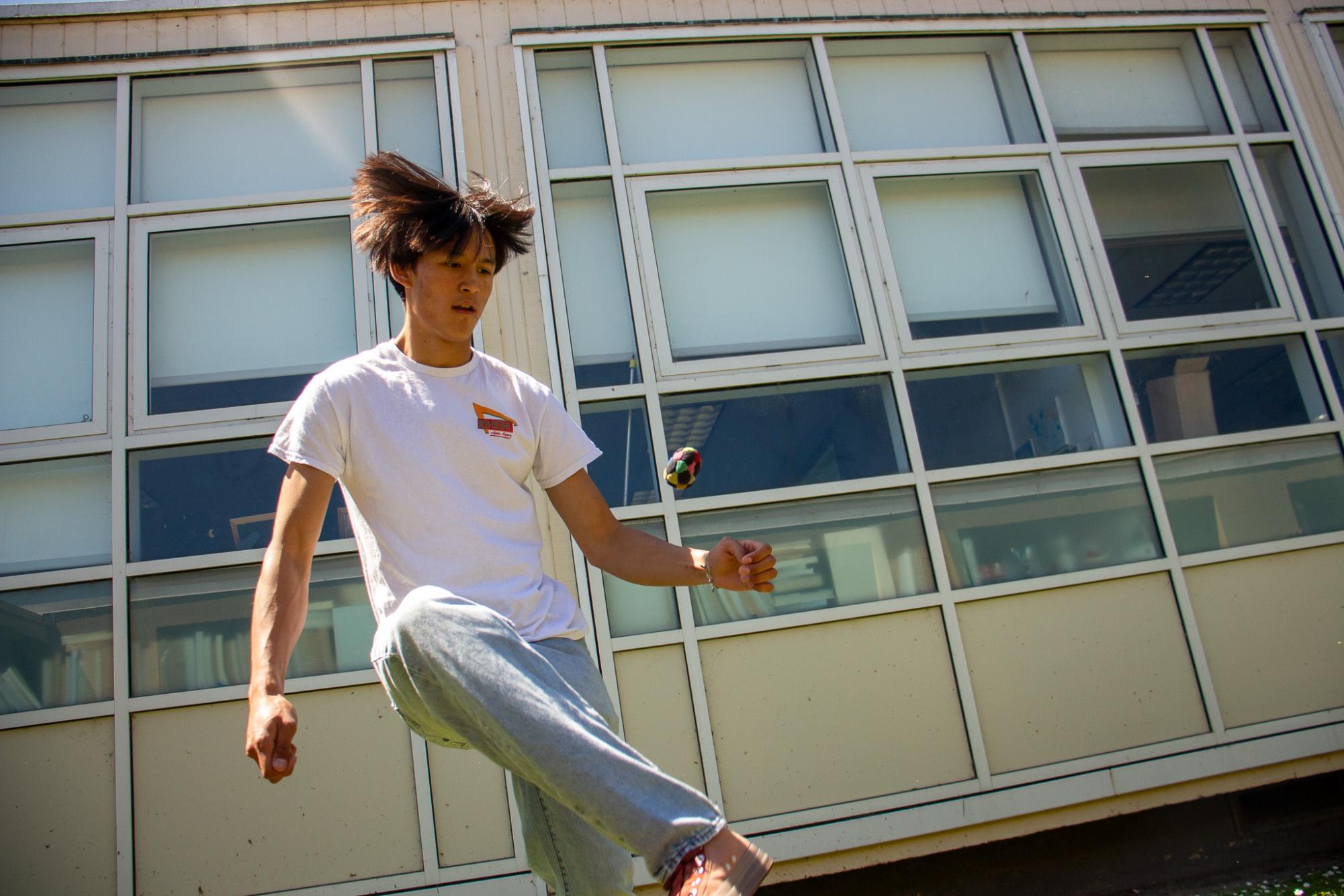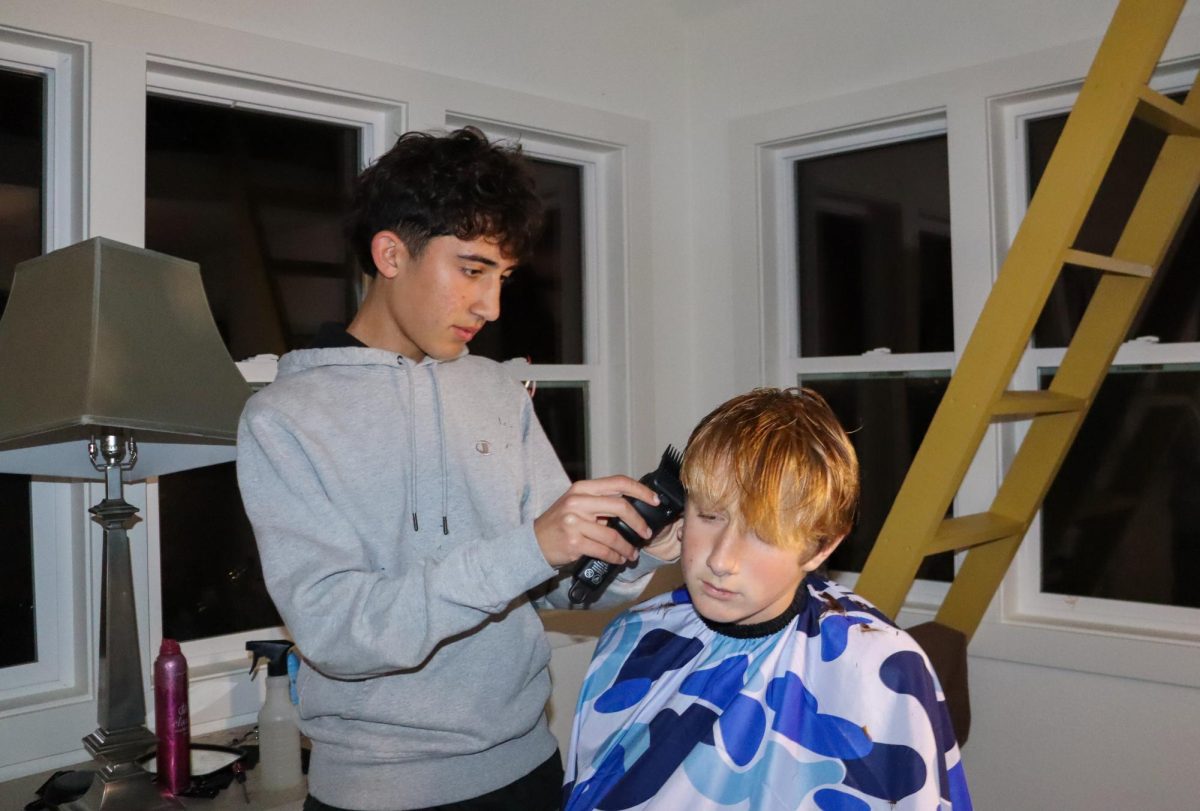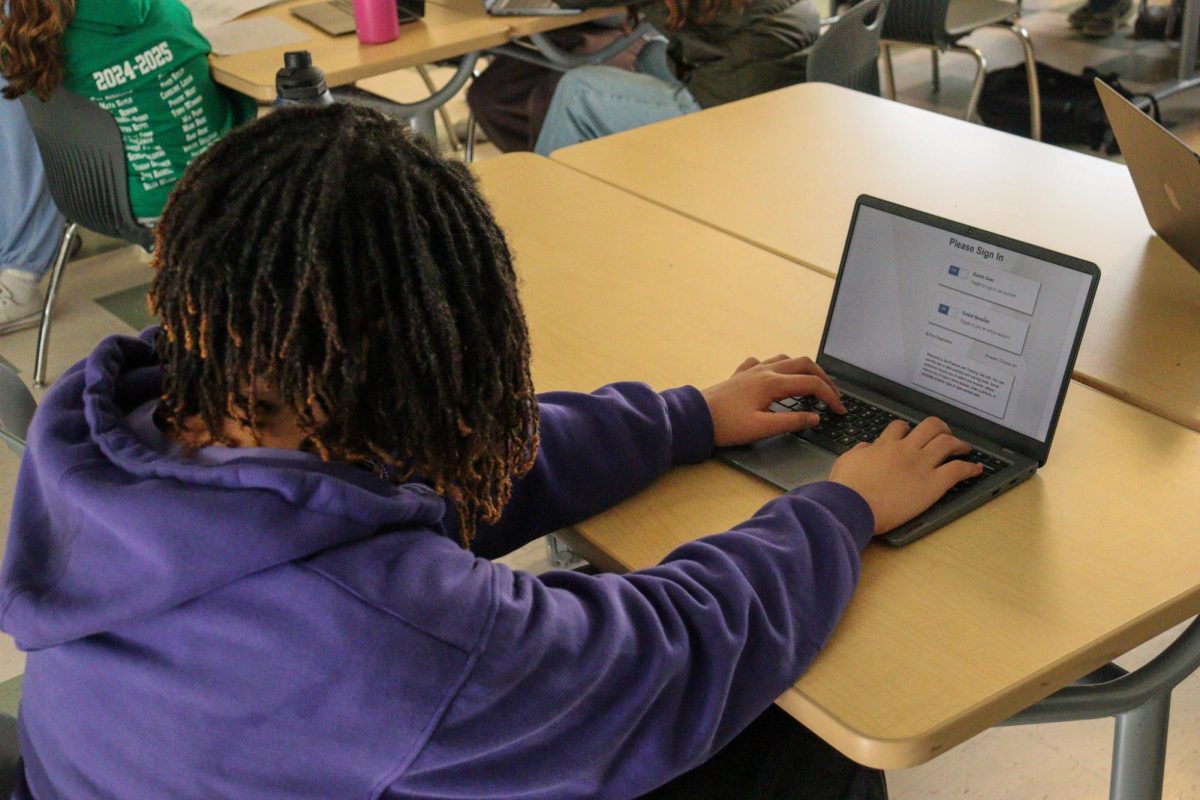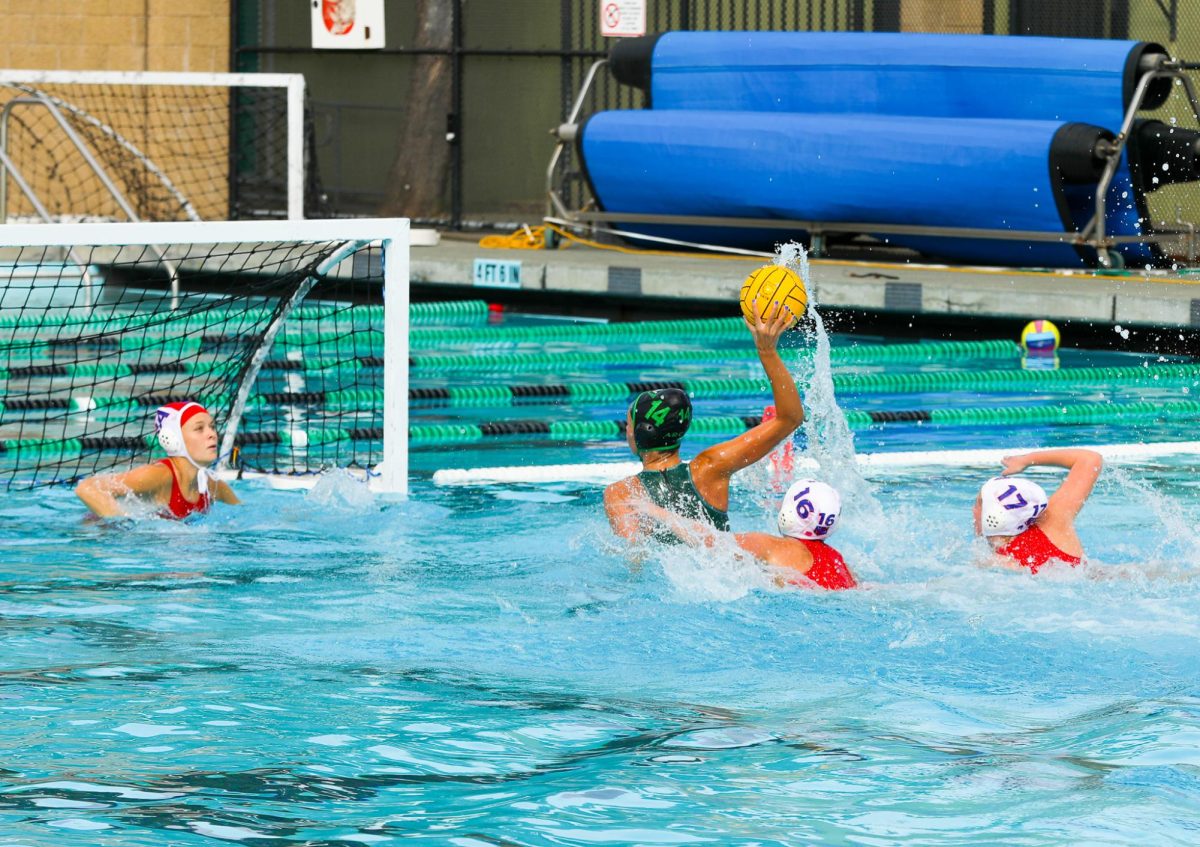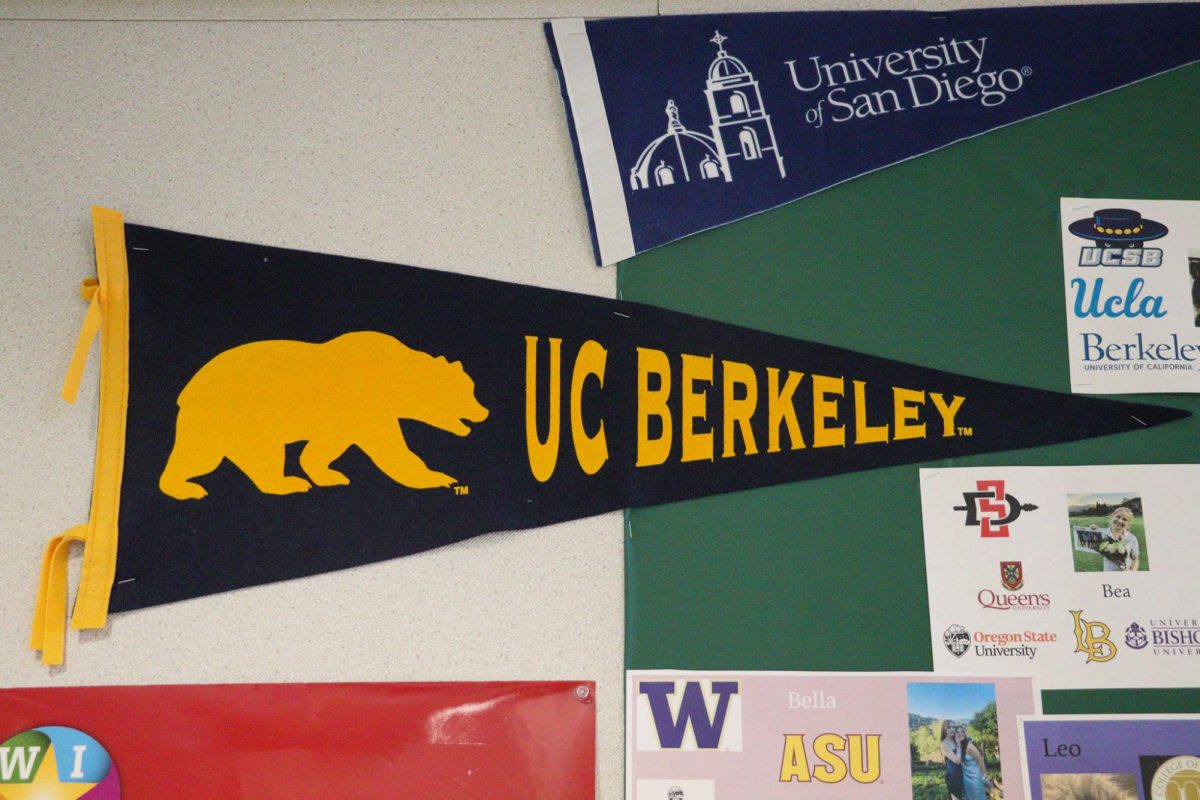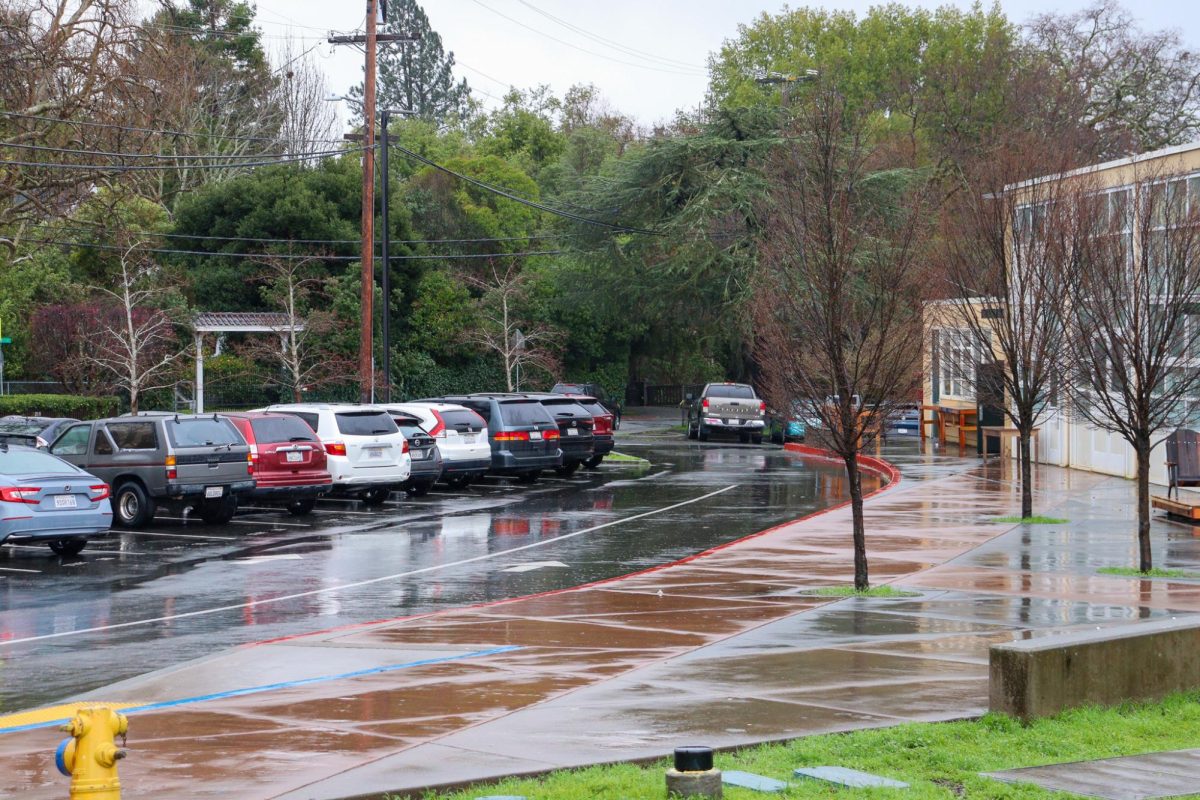Starting January 10, the Tamalpais Union High School District (TUHSD) implemented a strict phone policy affecting all students within the district. The policy requires students to keep their phones in a storage unit during instructional hours, with noncompliance consequences ranging from cell phone confiscation to detention. Archie Williams has observed the policy for over five months, and the changes on campus have garnered recognition by administration, teachers, and students alike.
The policy aimed to improve student engagement by limiting distractions within educational environments. The notice from TUHSD cited a 2023 study by Melissa Huey and David Giguere that discovered correlations between cell phone usage and classroom anxiety, comprehension, and levels of mindfulness. Since the adoption of the policy, Archie Williams PE teacher Tim Parnow has noticed increased engagement in his classes following struggles around phone regulation earlier in the year.
“In PE specifically, [the policy] has been positive. It definitely took a little bit of time [to get used to],” Parnow said. “[Since] we got [our system for collecting phones] figured out and it became a routine, I think that participation has improved. Even towards the end of the period, when we get through whatever it was we were teaching, kids don’t sit down and go on their phones; they will continue playing and talk to other people.”
Archie Williams Biomedical Sciences and Peer Resource teacher Jenny Brown has also noticed differences in student behavior after the policy was introduced in her classes.
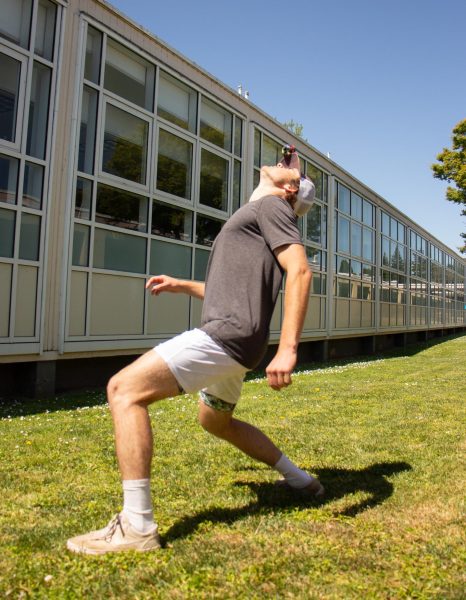
“I’ve been pleasantly surprised by the policy, and I think that I’ve been noticing that the reflexive reaction [to use one’s phone when met with a short break] is dampened,” Brown said.
While the policy requires all teaching staff to collect students’ phones at the beginning of their classes, it also allows the use of phones for educational purposes or emergencies at the teacher’s discretion. Archie Williams Assistant Principal Kaki McLachlan believes that room for exceptions within the policy has been necessary for proper application.
“There are plenty of reasons why a student might think they need their phone, and then there’s a few reasons why they actually do. I think in those few instances, when a student needs their phone, communicating with the teacher or setting up a plan is totally appropriate,” McLachlan said.
Brown has allowed students to use their phones when necessary for laboratory purposes in her Biomed class. She has noticed that the habits built by restricting phone use allow for a more engaging classroom environment.
“One of the things I’m trying to work on with everybody [in my classes] is those self-management skills and helping everybody recognize that we use our phones as a tool when it’s needed for what we’re working on,” Brown said. “I appreciate the flexibility [within the policy] for when we need to use [our phones] as tools, because I feel like so much of what we do is embedded, good and bad, into our phones.”
Before January, individual teachers enforced their own rules regarding device use in class. Some teachers confiscated phones at the beginning of class, while others allowed for phone use outside of instructional time. Now, with the implementation of a school-wide standard, McLachlan reported overwhelmingly positive reactions from staff, both to the announcement of the policy and to the effectiveness of the application.
“I think there were calls [after we announced the policy] from some staff to say, ‘Hey, we’ve been doing this all along, and we would really appreciate it if everybody could hold true to this policy because it has had a positive impact on our teaching. If everybody could do it, then nobody looks like the strict teacher,’” McLachlan said.
Implementation of the policy included a learning curve for students and parents, as well as for staff. McLachlan noticed differing concerns among upperclassmen and underclassmen.
“There were students, especially upperclassmen—specifically seniors—that would speak to, ‘Yeah, I know, it’s a good idea, and it will be okay, but how am I going to plan my lunch with my friends?’ That was their concern. The younger grades had a bit more of a, ‘Don’t take it away,’ mentality,” McLachlan said.
Archie Williams senior Josh Palmateer experienced mixed reactions among his peers after the execution of the policy within his classes.
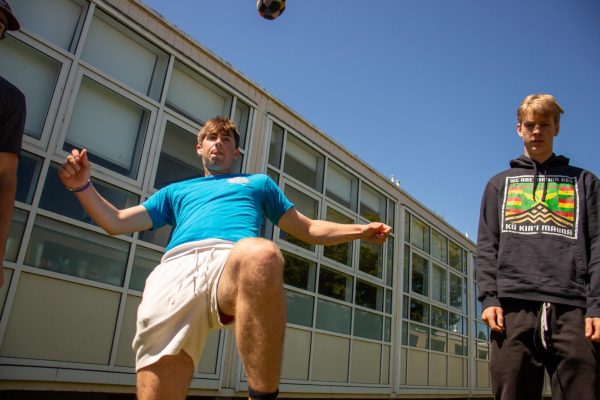
“I don’t know a single person who enjoys the phone policy. I don’t think people really like their possessions being taken, especially because a lot of people are physically addicted to their phone,” Josh said. “[The policy] makes sense because phones are definitely a problem. I can see how they can become very distracting for certain individuals, but I feel like [the consequences] are a bit of an overstep, and some teachers kind of abuse the power it gives them.”
Consequences for violating the policy range depending on repeat offenses. Offenses occur when a teacher confiscates a phone that was not stored at the beginning of class and delivers it to the office, where student retrieval is only possible at the end of the day. If a student’s phone is confiscated more than once, meetings with the student’s parents and administrators may occur. The severity of the consequences has effectively discouraged students from violating the policy multiple times.
“It’s not foolproof; we still see, on a daily basis, phones being turned into the office by teachers, [but] we rarely see repeat offenders,” McLachlan said.
While the policy’s campus-wide objectives occurred as predicted, students pursuing screen-free entertainment on campus was not one of the policy’s written goals. The observed increase in peer-to-peer engagement was unexpected, with students having taken to hacky sacking or conversing instead of sitting with their devices during class breaks.
“I’m a really big believer in brain breaks and movement, so instead of people going to their phones to scroll, I started saying, ‘Go take a five-minute break and hacky sack,’ which they did. And now, people are enjoying moving their bodies and enjoying talking to other humans for five minutes instead of a mindless scroll by themselves,” Brown said.
The game of hacky sack contains two or more people in a circle and a small footbag filled with sand, dirt, or plastic pellets. Players aim to keep the footbag off the ground by kicking it and using various body parts to keep the bag in the air. The game has been popular within the TEAM Academy since the beginning of the 2022-23 school year but has recently exploded in prevalence campus-wide.
“Honestly, I think that people have been trying to find a different alternative to taking a break than going on their phone. I know I used to just go on my phone when I had downtime in class, and now we’ll go and play hacky sack,” Josh said.
Sophomore Esme Charles has noticed more students playing hacky sack inside and outside of class.
“Just randomly, I’ll be in PE and see people hacky sacking, or during passing periods, and in the quad I will see people hacky sacking. It’s kind of funny,” Esme said.
Every year at Archie Williams the spring weather coaxes students outside to enjoy a walk or to take a break from work and socialize in the sun. This year is no exception.
“I have seen an increase in hacky sacking [since the adoption of the phone policy.] I don’t know if that’s causation, correlation, or springtime weather, but students are finally realizing the power of a hacky sack,” McLachlan said.
Elementary and middle schools build physical activity into their curriculum with the knowledge of the benefits it provides in the classroom. At a high school level, however, it is rare to find students playing games and staying active during break and lunch periods. The resurgence of this simple game allows more students to integrate light physical activity, time outside, and social interaction into their school day.
“I don’t think it was meaningful. I don’t think it was meant to happen and whatnot. I don’t think that hacky sacks replaced phones, but I think that [the policy] made it a little bit easier for people to engage with other humans instead of a device,” Brown said.
While it is too soon to tell if there have been changes to educational quality by adopting a phone-free classroom environment, the campus-wide, short-term impacts have been overwhelmingly positive. Increased in-class engagement and participation have been beneficial for students and teachers, as well as the unexpected positive of students enjoying creative modes of entertainment. TUHSD doesn’t plan to make any changes or adopt a new technology policy in the near future, with the hope that greater impacts on learning environments will continue.
“[In the long run, the policy is about] recognizing that technology continues to change and shift, and it’s super powerful and has pitfalls. There’s a lot of really amazing things that our cell phones can provide us, and then there’s also pitfalls. If we can get to a point where we can use technology to benefit our learning, and train ourselves more on how to limit distraction, and have set our priorities with it, then maybe we can get to a spot where it is not an all-or-nothing thing,” McLachlan said.



